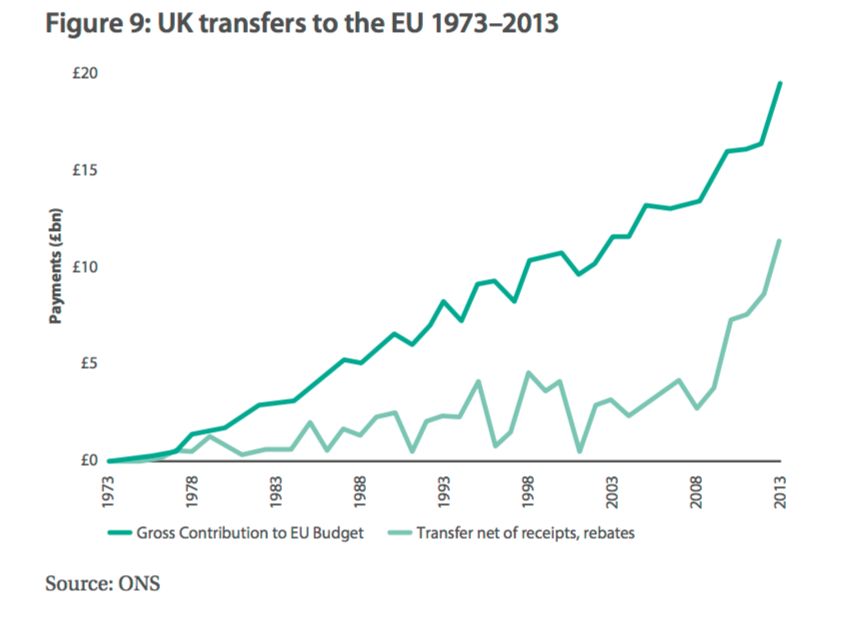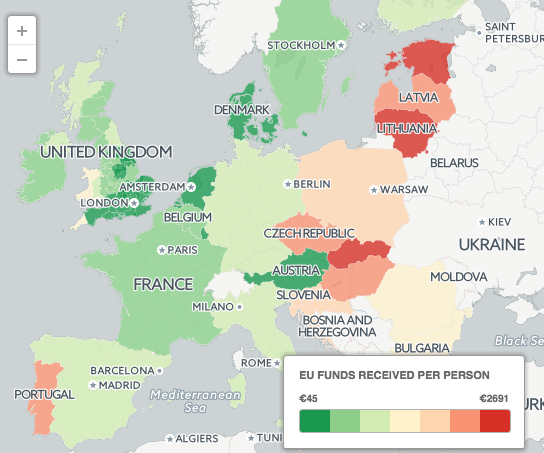![[Click for full screen]](https://www.stevebaker.info/wp-content/uploads/2016/06/Postcards-02.png)
The UK is billed over £50m a day by the EU. Our contribution has grown over the years. We can expect it to grow in the future.
We receive a rebate equivalent to £13.6 million a day, applied a year in arrears. It is negotiable. We receive £5.9 billion per year or £16.1 million a day back in ways we cannot control. We make a net contribution of £8.5 billion a year, equivalent to £23 million a day.
In 2014, our Prime Minister refused to pay an extra £1.7 billion when our economic growth was revised up. He was forced to pay anyway.
If we remain in the EU, we will pay yet another £2.4 billion to cover additional EU spending.
Eight years after one of the deepest financial crises in modern history, we face a rising bill to cover the EU’s priorities when we still have a deficit at home.
As Business for Britain has illustrated, our EU bill has risen dramatically since we joined in 1973. There is every reason to expect it to rise again.

Our hard-earned taxes are being shovelled into Brussels’ projects and salaries. The unelected EU officials responsible for spending this money are not obliged to prioritise what UK citizens need: their interests lay not with the UK as an independent country but with 28 states as a unified bloc.
The UK contributes more than it gets back, just as countries such as Portugal, Greece, Hungary and Romania receive more than they contribute. Our taxes are being spent in other countries on the EU’s priorities.
[Source: The Telegraph, 2016]
By leaving the European Union, the UK can take back control over the money currently given by the EU to UK farmers, regions, universities, scientists and others, while re-allocating our net contribution to our priorities, like hospitals, schools and infrastructure.
For the change we need, please vote Leave on 23 June.

How will leaving the EU impact the UK universities? I believe they will be greatly affected as a large portion of the research funding comes from EU grants. Furthermore most universities outside of London will see the number of undergraduate students reducing greatly, as the tuition fees EU national will need to pay will probably match the current fees imposed to international students. If you think that international students will make up the numbers please note that most international students choose to study in London and not so much in places like Bristol, Nottingham, Birmingham, Surrey etc I studied Civil Engineering at Imperial College London and the fees for international students 7 years ago were between 22k-24k per year. This does not include the living costs and accommodation costs these students have to pay. If Cyprus had not joined the EU I would not have studied here. During my studies I spent around 100k Euros. These are some of the indirect monies that come into the UK as a result of its EU membership.
We are net contributors to the EU: whatever the EU gives us is from our own pockets. When we take back control, we can choose to continue or even enhance university funding.